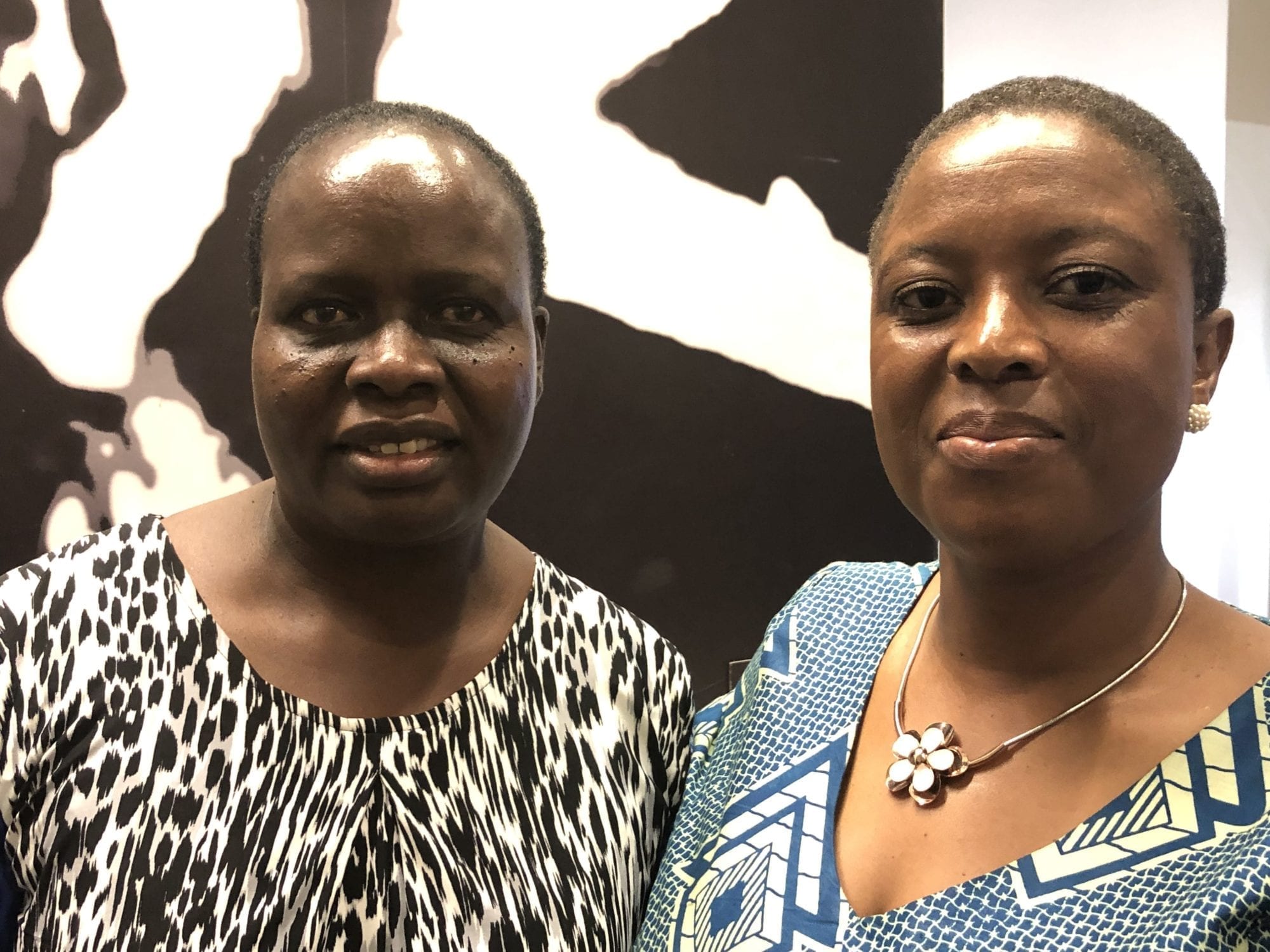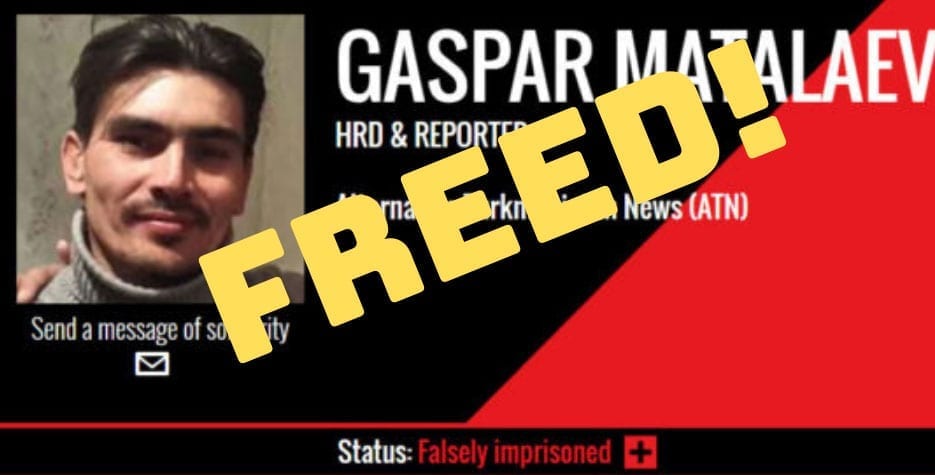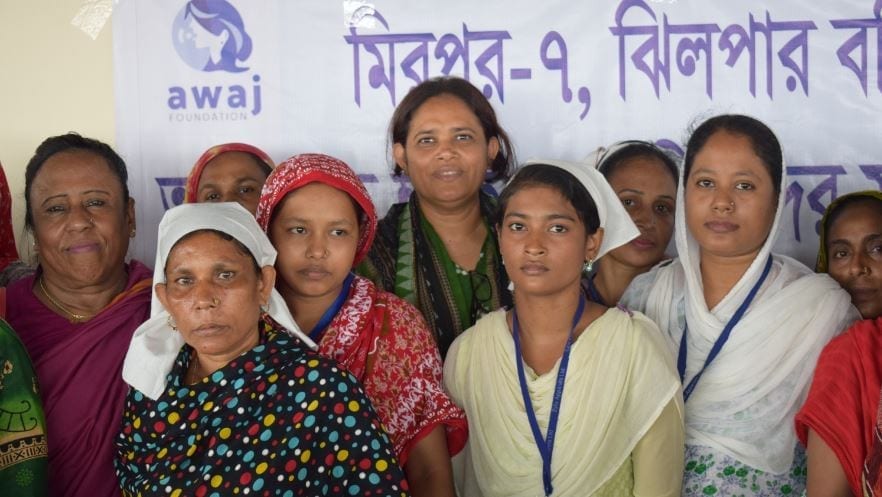Dynamic women worker rights leaders from across the globe offered a vision for hope, resilience and movement toward an economy and society that works for people and the planet yesterday at the event, “Building Power: Women’s Leadership in the Fight for Justice,...
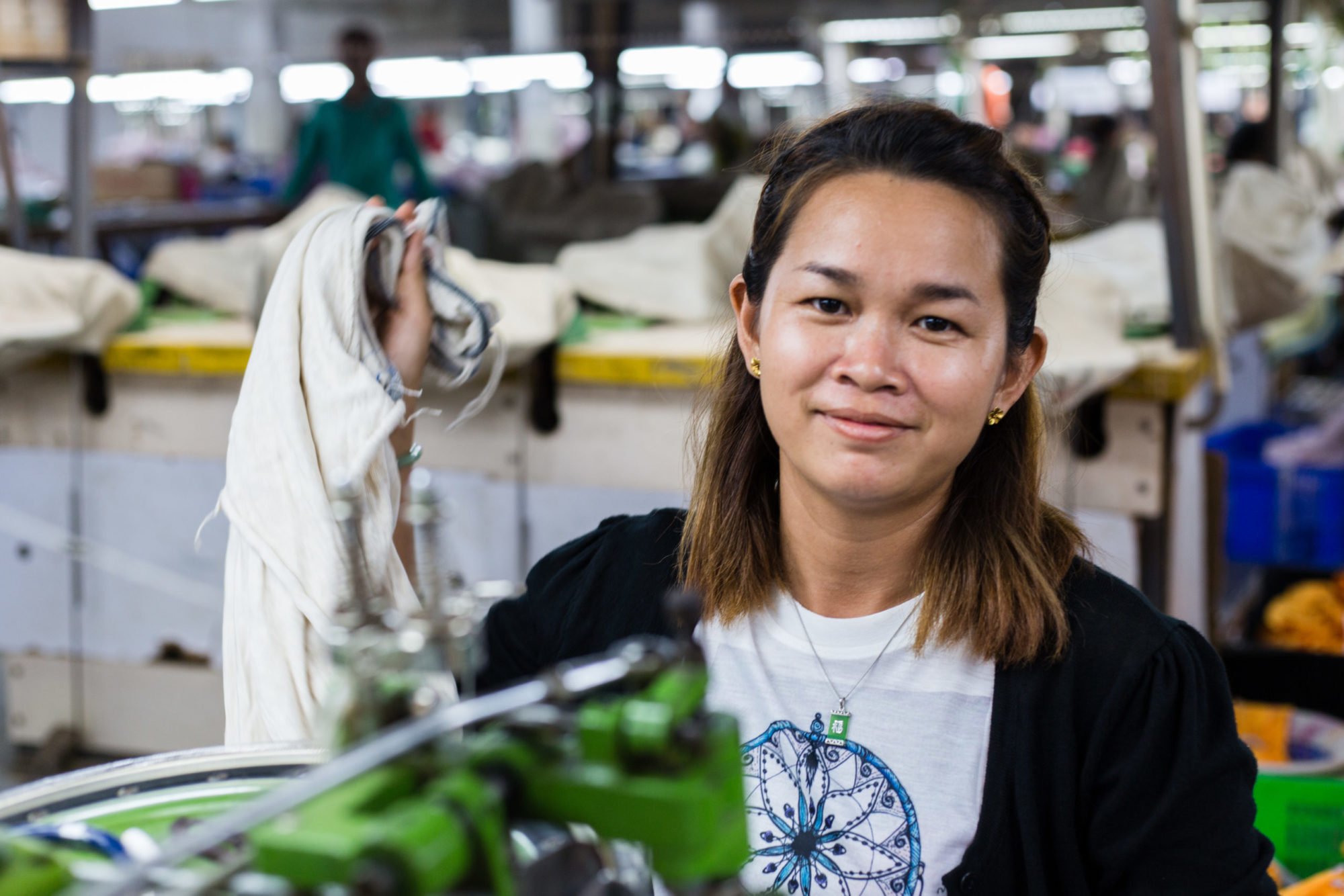
Heng Rithy, a garment worker in Cambodia, says her factory has good working conditions and she can support her family because workers have a union. Credit: Solidarity Center/Shanleystudio
An estimated 450 million people work in global supply chains—in textiles, retail, fisheries, electronics, construction, tourism, transport and agriculture. Economic globalization has created benefits for consumers, business and suppliers, but the practice of sourcing goods and services from countries where wages are low and laws are lax often results in jobs that are insecure and informal, involving dangerous workplaces, forced overtime and even slavery.
The Solidarity Center works with unions, worker associations and other allies in countries throughout the global supply chain in countries such as Bangladesh, Honduras, Lesotho, Morocco and Uzbekistan to address poverty wages, dangerous and unsafe working conditions and limited rights on the job.
For instance in Lesotho, the Solidarity Center partnered with labor rights and women’s rights organizations to negotiate a worker-centered, precedent-setting program to comprehensively address the rampant gender-based violence and harassment denying thousands of women garment workers a safe and dignified workplace. The Solidarity Center is helping lead training in addressing and preventing sexual harassment and other forms of gender-based violence among 10,000 workers at five factories there.
Migrant workers comprise a large part of the global supply chain, traveling to countries such as Malaysia to work in factories and to Gulf countries as domestic workers. The Solidarity Center partners with unions such as the Central Organization of Trade Unions-Kenya and the Kuwait Trade Union Federation to advocate for policies and legislation that address the exploitation and abuse migrant workers face, and educate workers who plan to work abroad about labor laws and workplace rights in their origin and destination countries.
Turkmen Labor Activist Released from Prison after 3 Years
Gaspar Matalaev, a labor and human rights activist who monitored and reported on the systematic use of forced adult labor and child labor in Turkmenistan’s cotton fields, was released today after serving three years in prison on spurious charges stemming from his...
Bangladesh Garment Workers Raise New Fire Alarm
A devastating fire in Dhaka’s Jhilpar slum earlier this month highlights the deplorable living conditions suffered by low-wage workers producing clothing for the global marketplace in Bangladesh’s highly profitable garment sector. The August 16 fire destroyed...
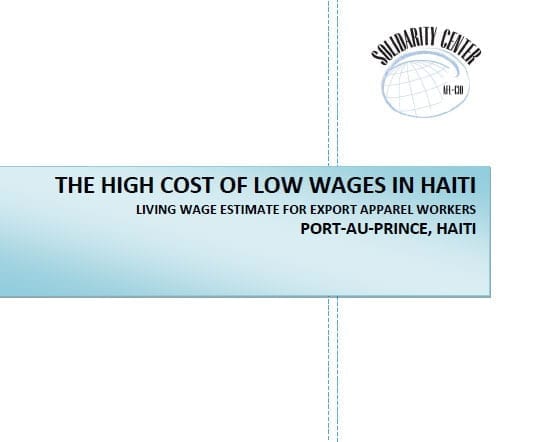
The High Cost of Low Wages in Haiti
Living Wage Estimate for Export Apparel Workers (April 2014)
Despite a 45 percent increase in apparel exports since the 2010 earthquake in Haiti, the women and men who sew T-shirts and jeans primarily destined for the U.S. market barely earn enough to pay for their lunch and transportation to work, a new Solidarity Center...

The High Cost of Low Wages in Haiti Living Wage Estimate for Export Apparel Workers (April 2014)
Despite a 45 percent increase in apparel exports since the 2010 earthquake in Haiti, the women and men who sew T-shirts and jeans primarily destined for the U.S. market barely earn enough to pay for their lunch and transportation to work, a new Solidarity Center...
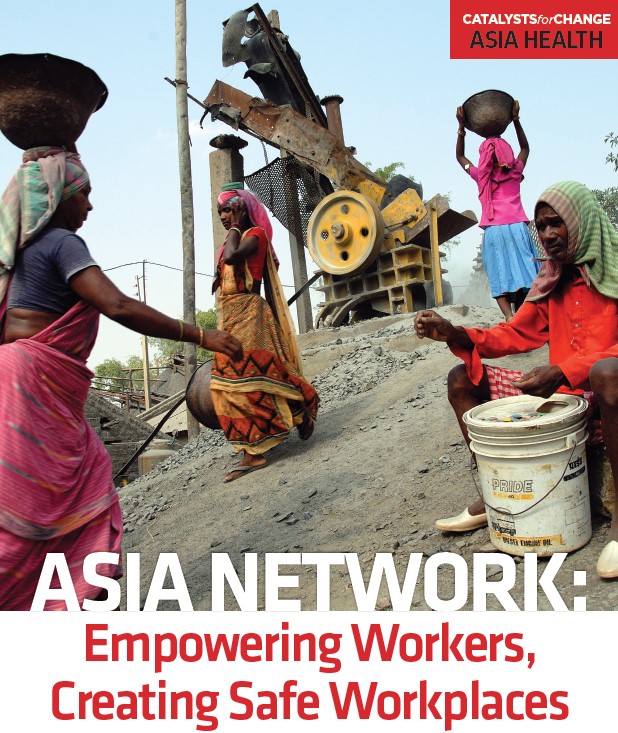
Asia Network: Empowering Workers, Creating Safe Workplaces
Millions of workers in Asia often risk their lives in unsafe and unhealthy workplaces. Through its network of more than 200 regional and national organizations in 14 Asian countries, including sector, national and global unions, ANROEV achieved concrete, worker-led...
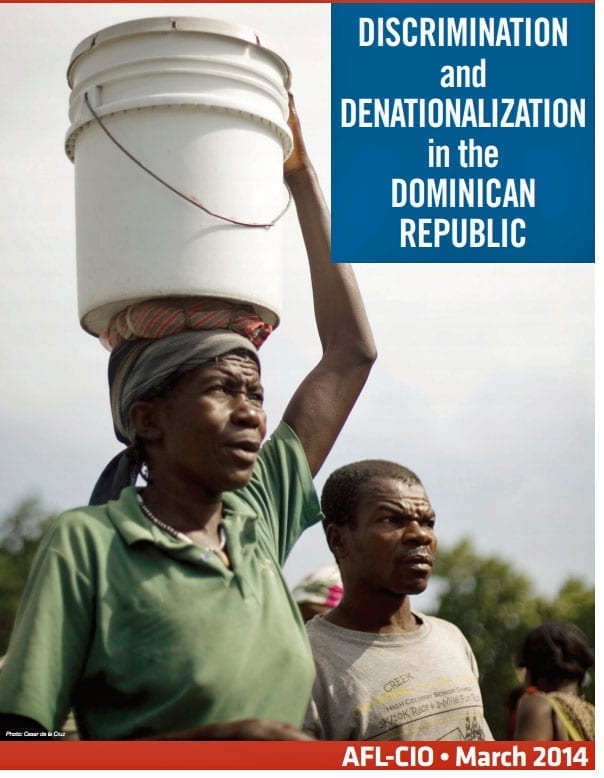
Discrimination and Denationalization in the Dominican Republic
A September 2013 Dominican court ruling taking away citizenship from many migrants means they will be excluded from any activity that requires official identification, including working in the formal sector, attending school, opening a bank account, accessing health...
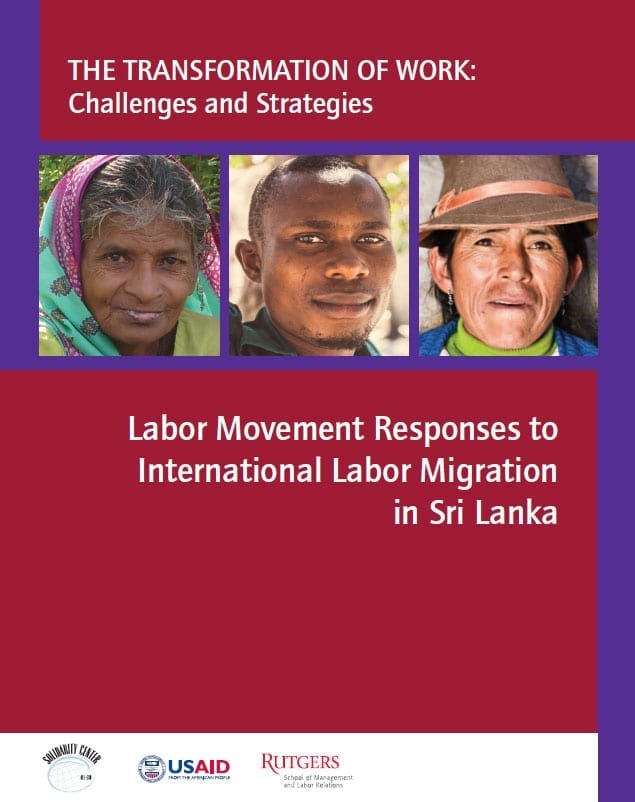
Labor Movement Responses to International Labor Migration in Sri Lanka
This report looks at the political and economic context within which Sri Lankan unions have attempted to respond to migrant workers, unions' role in the key governance and policy mechanisms that pertain to labor migration, and the way the Sri Lankan labor movement...
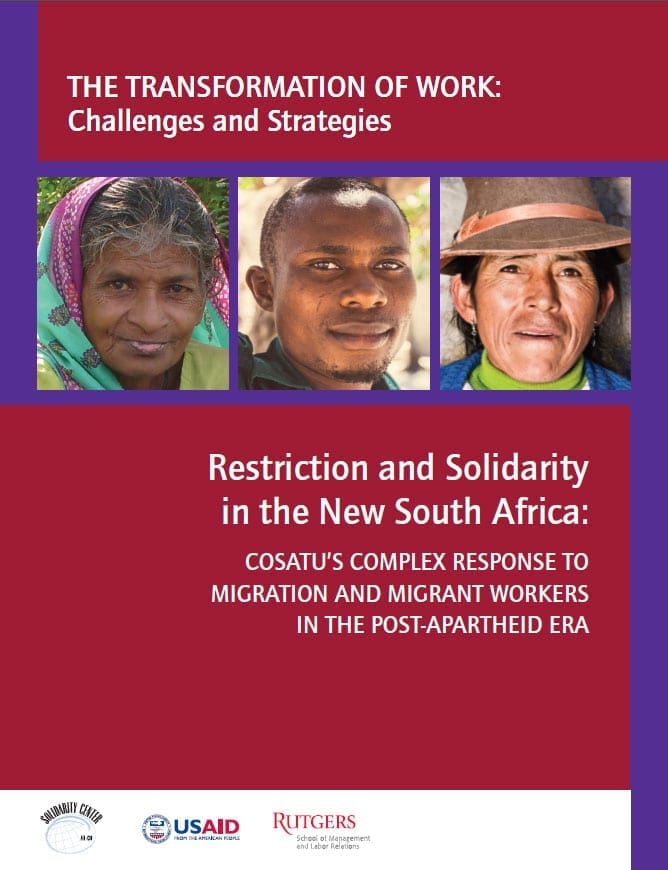
Restriction and Solidarity in the New South Africa
This report look at South African labor’s complicated engagement with migrant workers by examining the migration policy debate, labor’s response to the xenophobic attacks of 2008 and two organizing campaign in the agricultural sector. It sheds light on how labor...

